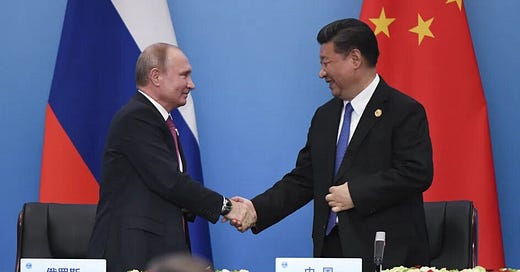War in Ukraine – China in Strategic Dilemma With Putin’s Russia.
Putin's failure reflects negatively on Xi Jinping's China.
It was on February 24, 2022, that Vladimir Putin decided to launch the invasion of Ukraine by Russia. Since that day, Xi Jinping has given his unwavering support to Putin, as part of the “limitless friendship” signed by the agreement of February 4, 2022, between the two countries.
China has logically refused to apply international sanctions, has abstaine…
Keep reading with a 7-day free trial
Subscribe to Sylvain Saurel’s Newsletter to keep reading this post and get 7 days of free access to the full post archives.




